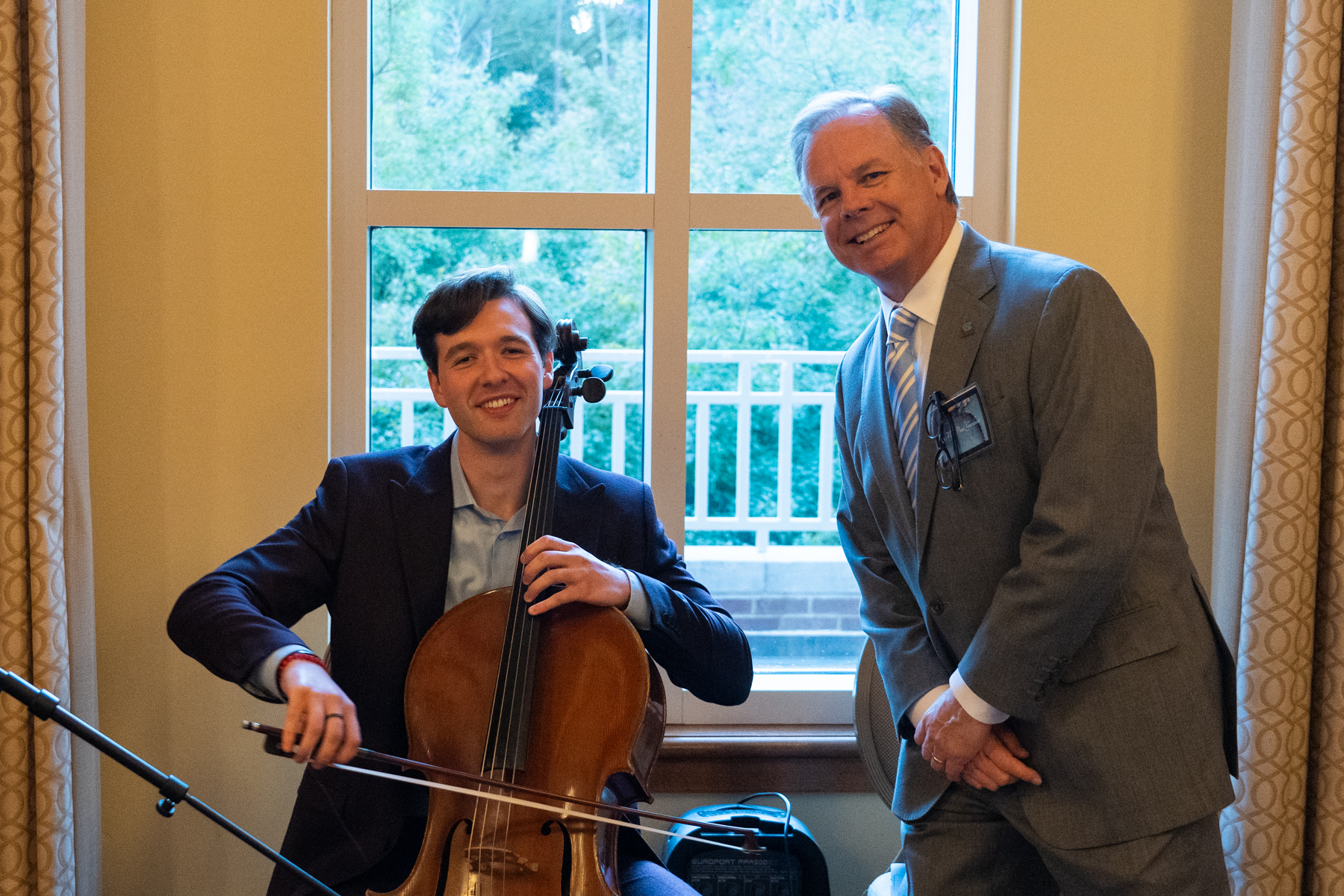Study Shows Adults at the End of Life More Likely to be Dissatisfied with Oral Health
Dr. Xi Chen, assistant professor in Department of Dental Ecology, recently published findings that show adults in the last year of their life are more likely to be dissatisfied with their oral health, overall health and mouth appearance than those not in the last year of their life. The study was published in The Journals of Gerontology, Series A, which publishes The Journal of Gerontology: Biological Sciences and The Journal of Gerontology: Medical Sciences.
“Essentially, we found that community-dwelling older adults in the last year of life were two to three times more likely to report poor oral health and general health than those not in the last year of life,” said Chen. “This same group of people were more likely to dislike their mouth appearance and be dissatisfied with their ability to chew food than those not at end of life. Neurosensory function such as taste and smell also significantly decline in the last year of life. That means that when systemic health deteriorates at the end of life, oral health declines and people recognize those changes.”
Oral health and systemic health have been proven to be linked in recent years. The complex physiological, psychological and functional changes at the end of life may dramatically affect oral health and increase the risk of oral infection, dental pain and oral soft tissue pathology. In turn, these conditions may exacerbate systemic health decline and further compromise quality of life in older adults at the end of life, especially in those who experience prolonged functional loss prior to death.
The study, which was the first of its kind, linked the data of the Piedmont 65+ Dental Study and the National Death Index (NDI) to examine self-reported oral health and oral health behaviors in community-dwelling older adults in the last year of life. Eight hundred and ten adults over 65 years old were interviewed at the beginning of the study, and again at 18 months, 36 months, 60 months and 84 months. The self-perceived oral health and behaviors of those who died within a year after an interview were then compared with those of those who did not.
“We were not surprised to see the correlation between systemic health deterioration and the perception of oral health deterioration in end of life community-dwelling older adults,” said Chen. “Rather than pain, tooth sensitivity, dry mouth and looseness of teeth, the perception of oral health deterioration may result from the concerns on mouth appearance and the loss of oral function.”
Study researchers believe that these findings may help dental professionals understand how older adults perceive oral health at the end of life and eventually lead to better guidelines for dental care for those at the end of life.
“Essentially, this study gives us additional knowledge about what oral health needs are present and what conditions need improvement in community-dwelling older adults at the end of life,” said Chen. “The oral health needs in community-dwelling older adults at the end of life are distinctly different from those in the geriatric patients with advanced frailty. Appreciation of the distinct oral health needs in older adults with different dying trajectories could help us design individualized, safe and effective oral health intervention and ultimately provide a better quality of life for those adults at the end of life.”
To read the full study, click here; please note a subscription is required. The study has also been covered by ElderBranch. Study co-authors include Dr. Jim Beck, executive associate dean at the UNC School of Dentistry; Dr. Supawadee Naorungroj of the UNC Gillings School of Public Health Department of Epidemiology; and Ms. Christian Douglas of the UNC Gillings School of Public Health Department of Biostatistics. The study was funded by UNC start-up funds.


